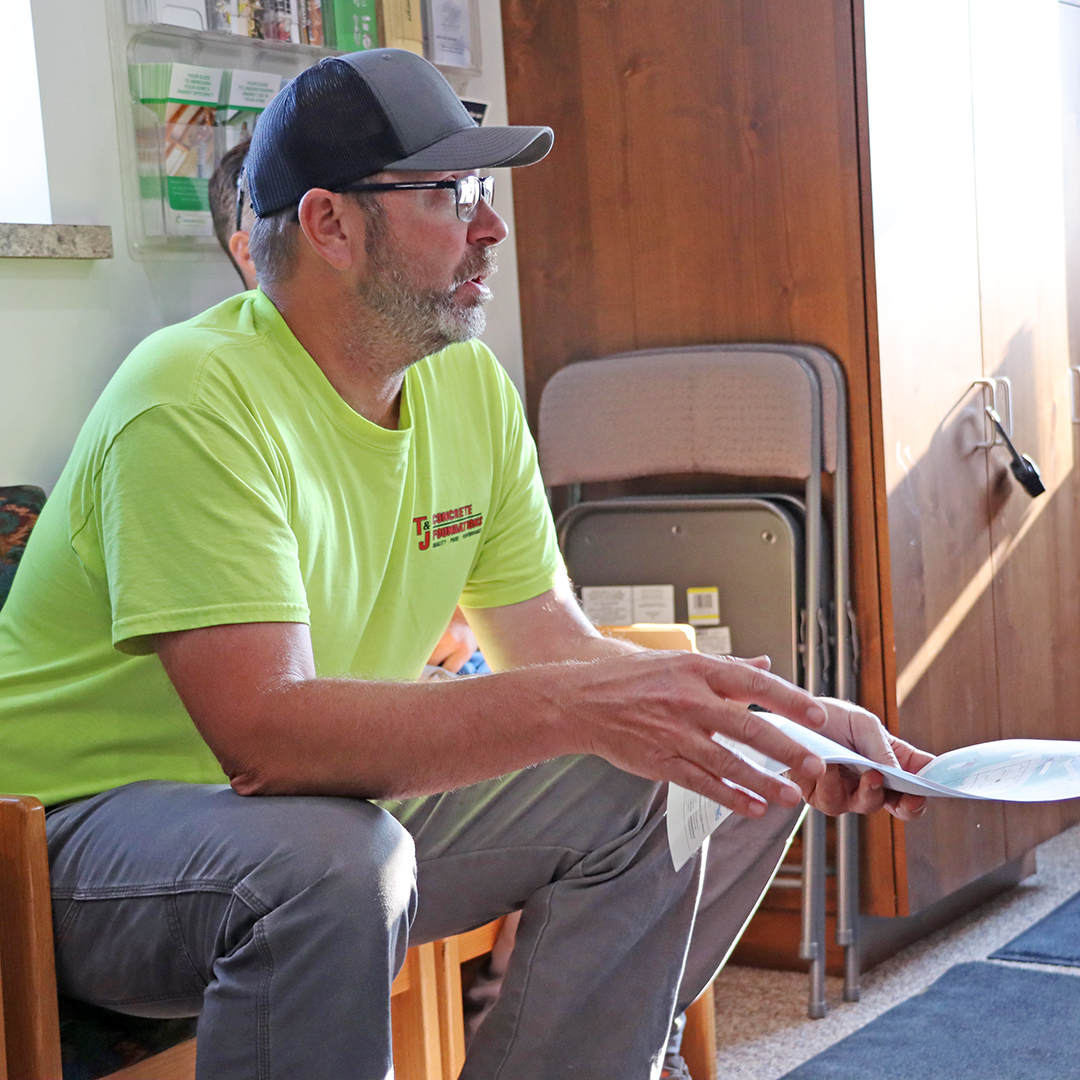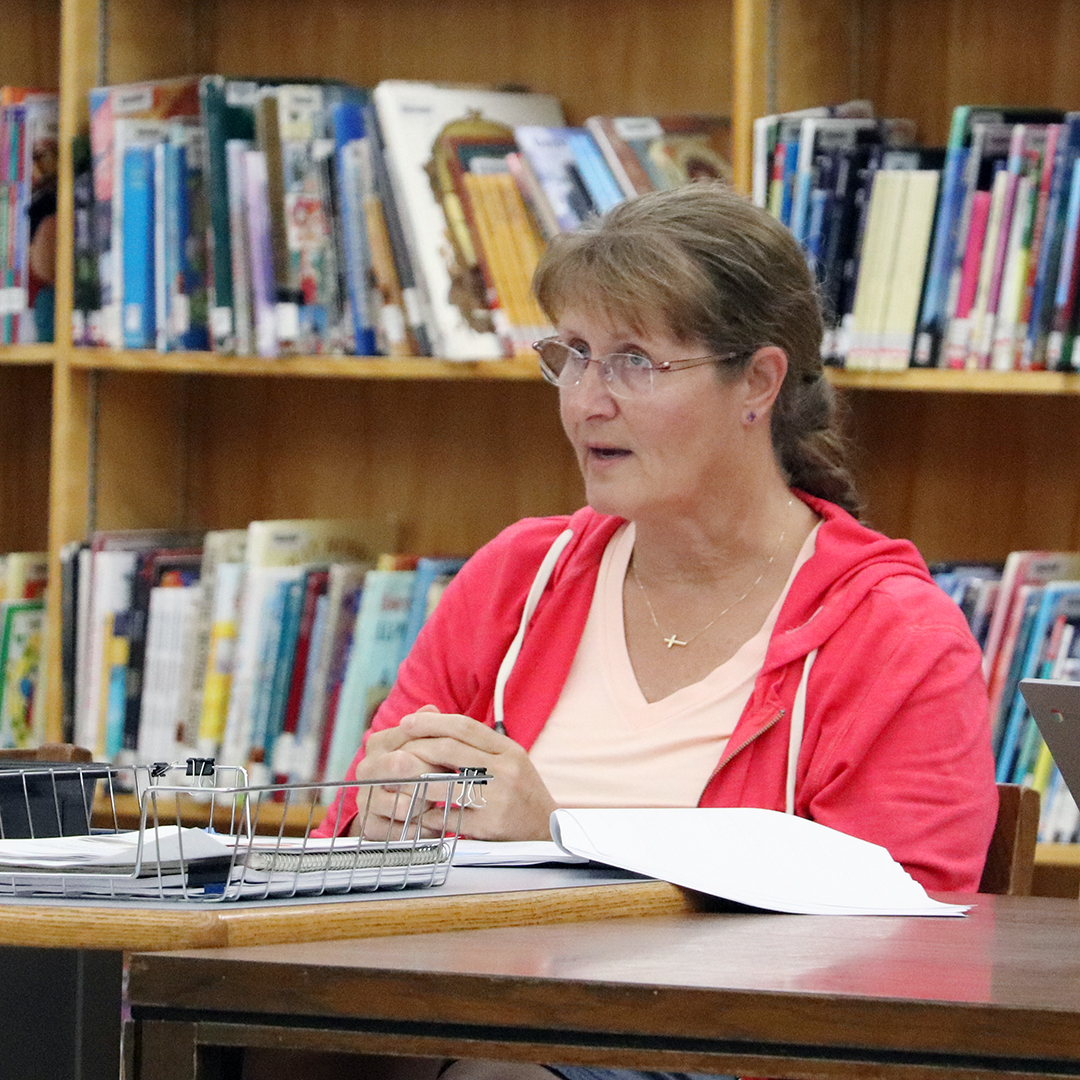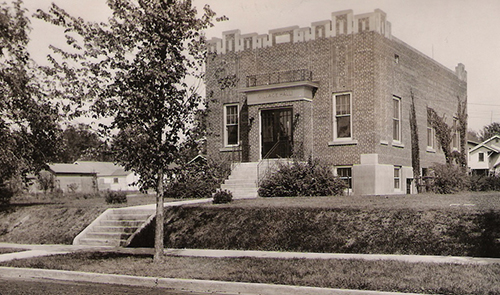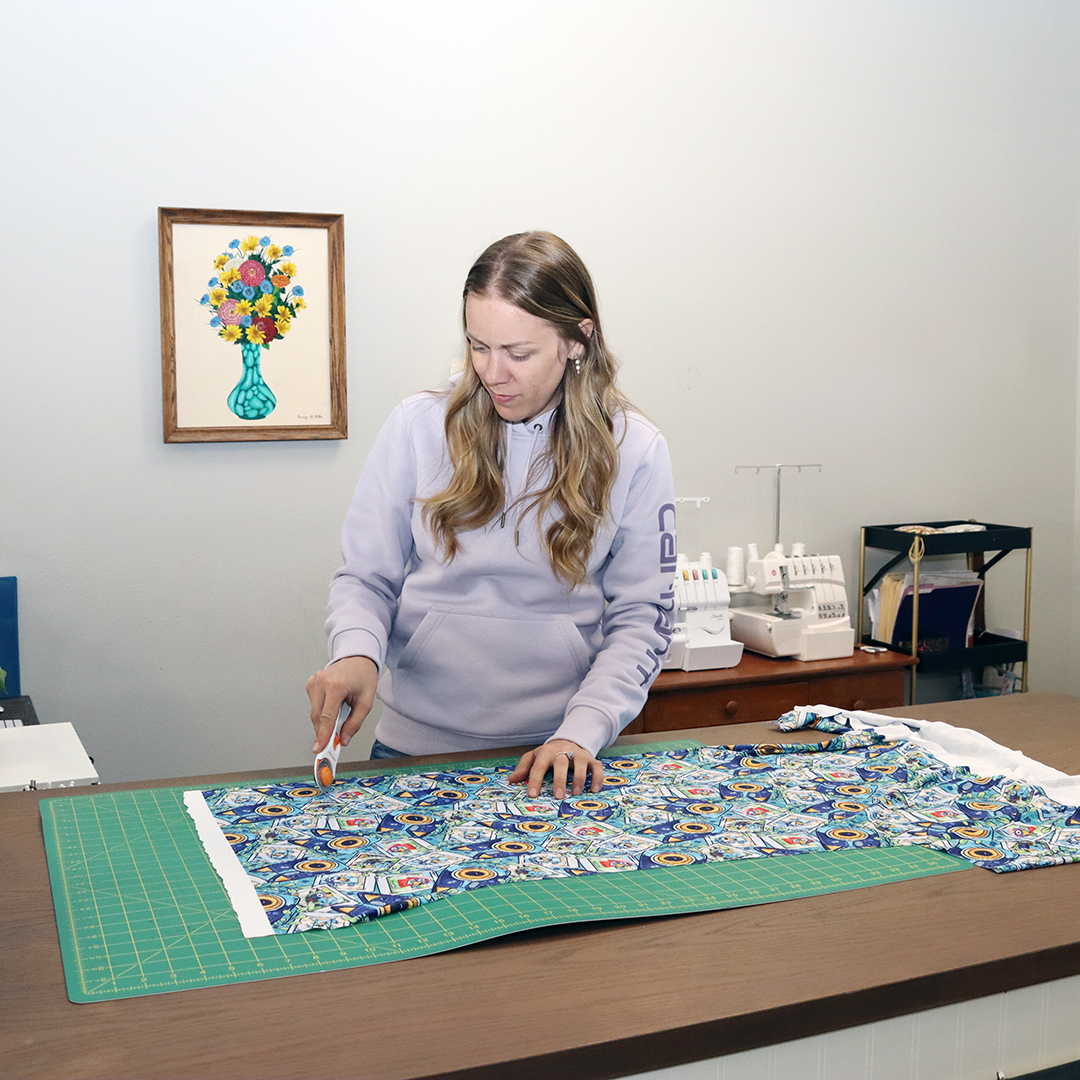Lake Holcombe School Board - Members divided on issue of student health services
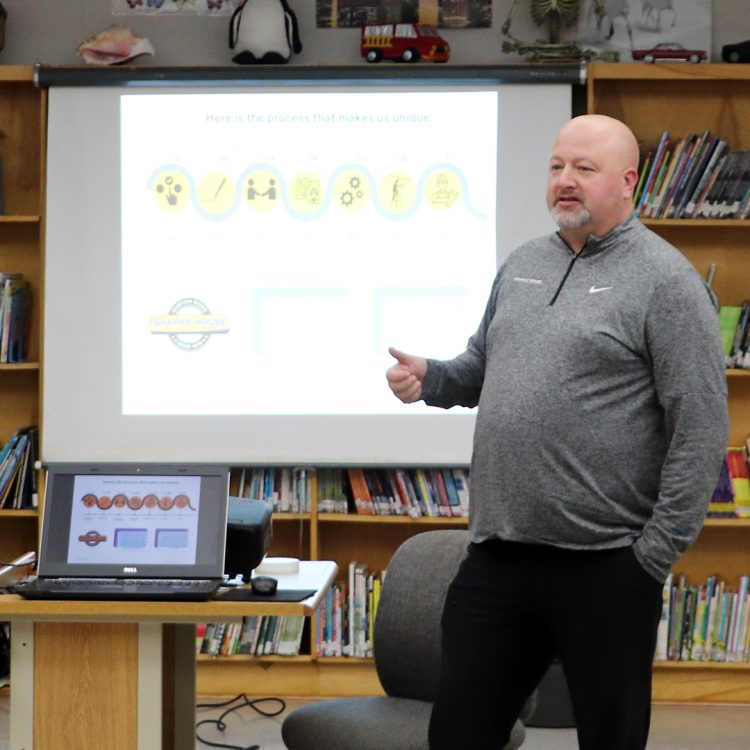

Patrick Boughton, with Graphic House, spoke March 18, to the Lake Holcombe School Board about what his company offers in the way of video boards, which are fast replacing electronic scoreboards. The newly revitalized PRIDE Committee wants to help fund the endeavor, which will benefit the district. Boughton said most schools he deals with for the video boards are actually small and similar in size to Lake Holcombe. Photo by Joy Dain
By Ginna Young
“Coupled with what has just happened with the closure of many, many Prevea clinics and two major hospitals, that is certainly going to tighten up and limit the access to care for folks, including our students.”
That’s what Lake Holcombe School District administrator Kurt Lindau shared at a board of education meeting March 18, when discussing whether or not to approve Chippewa County Public health nursing services. It’s something that Lindau and the public health department have been in talks about for several years, and the health center closings have expedited that.
If approved, the services include immunizations and provide reproductive health services in the school, such as contraceptives, STD testing and treatment, and pregnancy test supplies. Lindau implemented this plan at his previous district.
“It seemed to go fairly well,” he said. “In fact, it created some good, positive conversations between some students and their parents, at a time when it probably needed to happen.”
The services could be either active or passive consent for the beginning of the next school year, with active meaning the public health official has to check to make sure the parents gave consent to meet with them, while a passive agreement means the public health nurse can meet with students any time.
“Kids have access to this now,” said Lindau, adding that they must visit the public health office, which does not requiring checking with parents.
“Are we going to broadcast that this is going to be available, for you to come in and get birth control without us going to your parents?” asked board member Debbi Readinger. “Because, I think that’s going to put us in a sticky situation.”
Lindau said the goal is also to create conversations at home. Board member Tess Engel asked how the district would get that letter to parents, to which Lindau said it would be sent home at the beginning of the school year.
Jamie Tester-Morfoot, board member, pointed out that there’s something to be said for making health services available to kids, because, as teens approach adulthood, insurance will not cover certain services. Board president Brian Guthman was concerned that parents won’t return the paperwork, specifying if they give their consent or non-consent.
Readinger says if the permission form is in the beginning- of-the-year packet, parents should be required to turn it back in, but, even though it’s helpful if they do, Morfoot said not everyone fills out things, if they don’t apply to their family.
Without parental input on the matter, Readinger was hesitant to approve anything.
“I think we’re going to have heated parents,” said Readinger.
The matter went up for vote for the passive consent option, with two in favor (Matt Flater, Morfoot) and two opposed (Engel, Readinger), leaving the deciding vote to Guthman.
“I can go either way on this,” he said, voting yes to the motion, with the reasoning that if parents don’t return the paperwork, that won’t help the students. “Then the kids don’t get the services.”
While not an action item, the board did hear a presentation from Graphic House, about new scoreboards for the school. In actuality, they are video boards, which function like a high-level streaming service.
Now that the PRIDE group has reorganized, after a hiatus, that committee is seeking ways to better the school district and want to help fund the video boards.
“It’s kind of a really neat tool for educational and advertising,” said Flater, who is also a member of PRIDE.
By having the video boards, students who are not interested in athletics, can build content and graphics, with the Graphic House company offering a system to build that into the curriculum.
“There are kids that aren’t in athletics, this is what excites them these days,” said Graphic House representative Patrick Boughton.
The boards are also good for monetary sponsorships, whether digital or installing signage around the board. One school district Boughton has worked with, is pulling in $95,000 worth of sponsorships a year, after installing the video boards and also feels that they are pulling in students from other districts, because of the upgrades.
Using the video boards, presentations and messages can be shared at pep rallies, assemblies and events, with the scoreboards used during ballgames. The board was 9x16 for an average size, but are available in a smaller size.
“It’s less of a cost and more of an investment, into providing students opportunities in different avenues we currently can’t do,” said Boughton, who mentioned that old scoreboards are becoming defunct and it’s getting hard to find parts for repair. “This is the future.”
Of course, all this comes with a hefty price tag between $150,000 and $200,000, but that’s where PRIDE comes in. With the go-ahead from the board, PRIDE would like to see a two-stage integration of the boards in the big gym and the football field, using a system through Hudl, which the district already has experience with.
As part of that, the Hudl camera could move between the sports seasons.
“The goal, I think, long-term, is to have 100 percent of our athletic programs advertised to the public, so they can see what’s going on,” said PRIDE member J.D. Kirkman. “The potential’s really unlimited right now. It’s only going to help us.”
Kirkman already has a promise from an electric company to install the boards and camera, to offset the cost. Before moving ahead, PRIDE needs a policy of procedure in place, on how to go about seeking advertising and how that will work.
Activities director Todd Senoraske agreed to set something up with PRIDE, as they are on a tight deadline to lock in an $8,000 price through Hudl, by April 1. That starting point will give PRIDE a base to continue with funding options.
“The committee is very, very excited about the project,” said Kirkman.
The board did approve a virtual Spanish course to increase options for middle schoolers in their exploratory curriculum. For $6,000, the course chosen offers a real person, in real time, to the eighth graders as their exploratory curriculum.
“We thought we’d try Elevate K-12,” said Lindau. Members also approved the Delta Dental renewal, for staff.
“Good news, 0 percent increase,” said Lindau. Also approved, was the hire of assistant baseball coach Vincent Pischke, while members accepted $200, from the Lake Holcombe Booster Club Haunted Trail, for the Angel Fund; $175, from the trail, to the after-school program; and $3,000, from the trail, for the end-of-year el-ementary field trip.
They also agreed to change the next meeting date to Monday, April 22, at 6 p.m.
During the meeting, Lindau reported that Lake Holcombe School is getting a wireless infrastructure upgrade this summer. When the district switched the school building from two to three, for accountability purposes, two years ago, an unintended positive consequence was receiving an additional $25,000 in e-rebate funding.
The current Cisco system is near the end of its life and no longer supported.
He also mentioned that they are exploring in-house virtual programming options, which is attractive for students who are looking to open enroll into the district.
“For the most part, our students still desire in-person education,” said Lindau.

